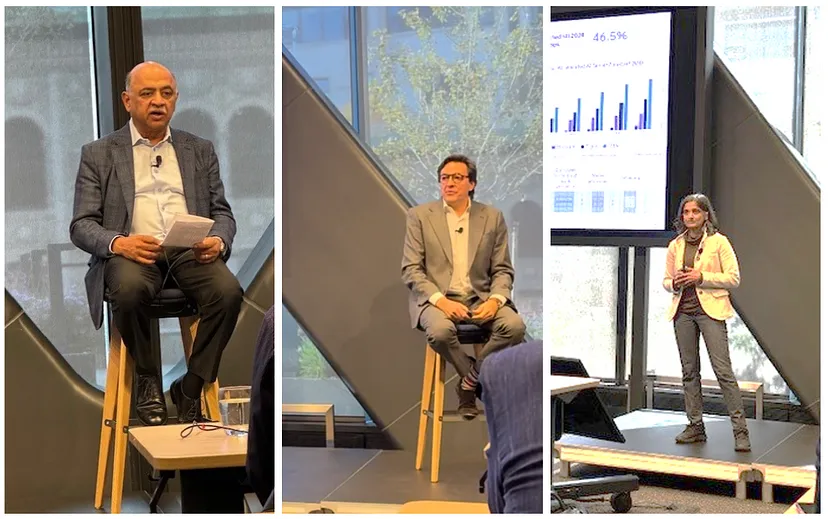
In short, a foundation model (term popularized by Stanford) is a type of machine learning (ML) model that is pre-trained to perform a range of tasks. Many Large Language models are pretrained on a vast amount of public data and the one for Generative AI that everyone is most familiar with is OpenAI’s GPT series, which is the foundation for ChatGPT.
For enterprise-focused companies, not having a consumer product can be a handicap when it comes to competing for and retaining audience/customer mindshare. ChatGPT is a household name because of prolific consumer usage and rampant misuse. In the enterprise space, the stakes are much higher and there’s not as much appetite for reckless experimentation.
At the IBM Analyst Summit in New York last week, at least one executive admitted that lack of awareness about their foundation models is a challenge for the tech giant despite its storied history as an AI leader. Today, IBM announced Granite 3.0, the latest version of its AI models for business and enterprise. Under CEO Arvind Krishna’s leadership, the company seems to be much more focused and better prepared to regain its lost momentum.
Unlike many of his peers, Krishna doesn’t subscribe to “bigger (model) is better” approach, when smaller models can achieve better task-specific performance compared to larger AI models at a fraction of the cost (and lower carbon footprint.) IBM is LLM-agnostic and has multi-billion-dollar strategic partnerships with competitors like Microsoft and AWS. It has similar engagements with multi-billion corporations like Samsung and Dun & Bradstreet to help them extract value from their enterprise data.
Here are some key takeaways specifically related to my areas of interest from the announcement today.
#responsibleAI #sustainability #AIethics #ethicalai #womeninai #SLMs
– Commitment to open source. Granite is available via Apache 2.0 licensing, which differentiates IBM from competitors who charge for their models.
– Focus on responsible development of AI. Granite Guardian 3.0 helps developers implement safety guardrails by checking user prompts and LLM responses for a variety of risks. (ICYMI Pioneers like Francesca Rossi and Phaedra Boinodiris have led the responsible and trustworthy AI efforts at IBM for nearly a decade.)
– Focus on performance. Granite 3.0 is designed to be fine-tuned with enterprise data, highlighting the emphasis on quality of data over quantity, focused on task-specific performance.
– Shift away from LLMs. The Granite Time Series model is said to outperform models 10 times larger, further supporting the case for smaller AI models, with potentially lower carbon footprint.
Two additional announcements that stood out for me as the CEO of a tech consultancy that helps large enterprises with responsible adoption of new technologies.
– Watsonx Code Assistant for developers to build their own AI applications, assistants and agents more efficiently.
– Integration of Granite 3.0 into IBM Consulting Advantage platform as the default model to help 160,000 IBM consultants deliver greater client value faster and at scale.
I asked an IBM executive about the impact on human workers as the pre-trained AI agents take on more tasks. They believe that the agents will help the workers become more productive, deliver better quality of work, and add more value to their clients.
In conclusion, this is not IBM’s first rodeo. IBM CEO Arvind Krishna has openly admitted in previous interviews that IBM was early to AI but slow to monetize. While not all their past bets have paid off, IBM’s renewed focus on enterprise issues of today rather than some future imaginary sci-fi threats make it a strong and reliable enterprise AI partner. It’s ability to unlock value from enterprise data by empowering their consultants and nurturing a robust responsible AI developer ecosystem could be a game changer for the tech giant and for the industry overall.
#IBMPartner #AI #GenAI #IBM #sponsored #watsonx
